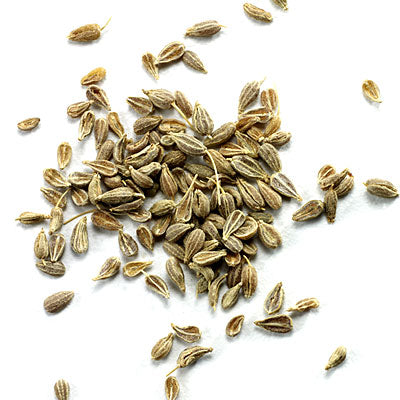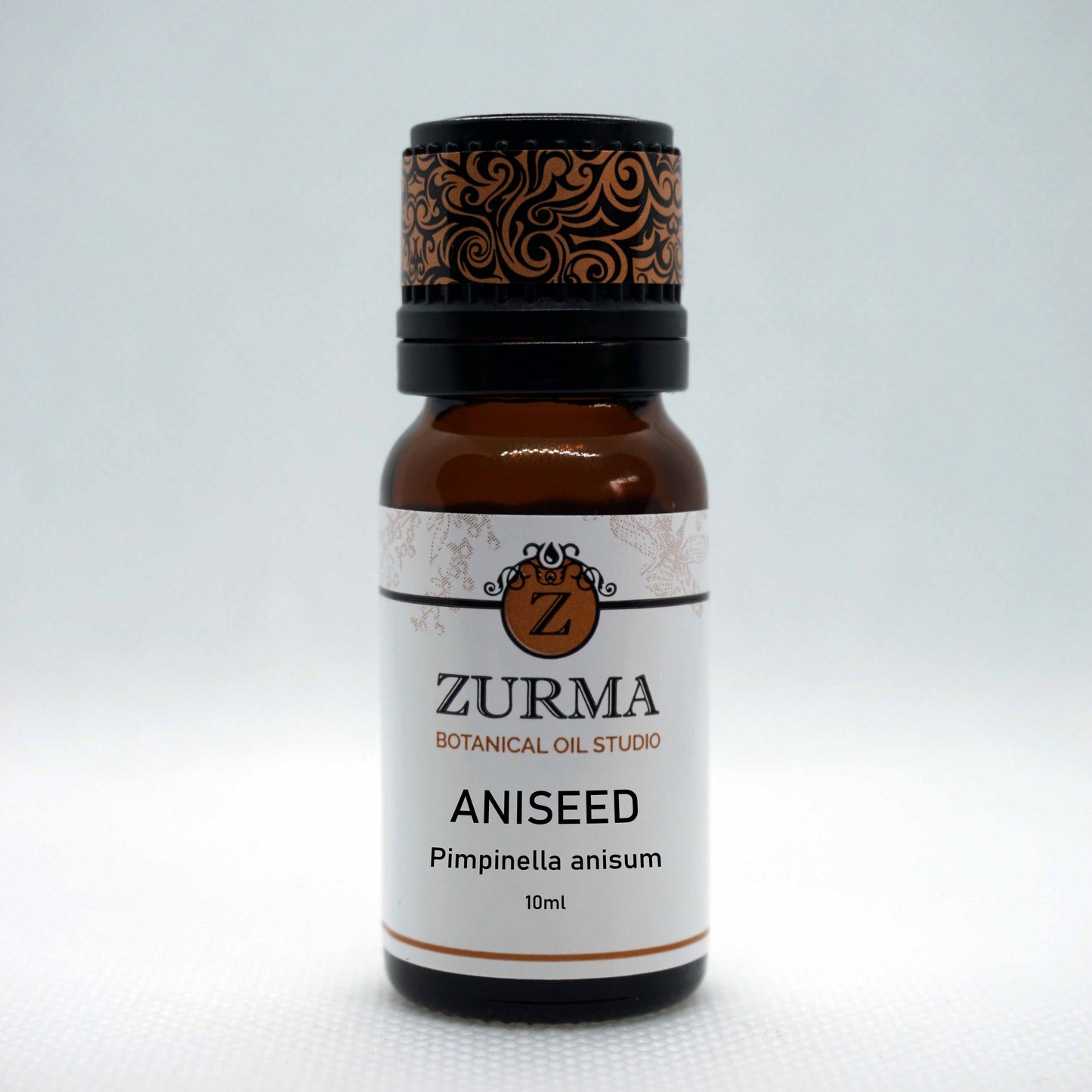Aniseed Essential Oil
Aniseed Essential Oil
Couldn't load pickup availability
Aniseed essential oil has a pungent, spicy-sweet aroma. It is a warming and drying oil that may be helpful as a tonic for digestive, cardiovascular, respiratory and reproductive systems. It has been used in the treatment of dry irritable coughs, bronchitis and whooping cough. Aniseed's heart-warming aroma has a comforting effect on the mind which can clear the head, relax nervous tension and may help with insomnia.
Botanical Name: Pimpinella anisum
Method of extraction: Steam distillation
Part of plant used: Seeds
Class: Phenolic Ether
Perfumery Note: Medium
Country of Origin: Germany
Description: Colourless - Pale yellow with a pungent, warm, spicy-sweet characteristic scent.
Actions: Antispasmodic, Antiseptic, Analgesic, Anti-emetic, Cardiac tonic, Aphrodisiac Stomachic, Diuretic, Carminative, Expectorant, Stimulant, Cholagogue, Galactagogue, Emmenogague Laxative, Parasiticide, Parturient.
Special use: Warming and Drying, Tonic for digestive, Cardiovascular, Respiratory & Reproductive Systems.
Blends Well With: Other calming oils- Cardamom, Caraway, Coriander, Dill, Fennel. Clary Sage, Rose, Lavender, Orange, Pine.
Safety Data: Avoid in allergic & inflammatory skin conditions. Avoid in pregnancy. Do not use in high doses it is narcotic slows circulation. Do not use with babies or young children. Avoid with Endometriosis and Estrogen dependent cancers. Avoid with liver damage.
Aromatherapy / Home Use
Circulatory, Muscle & Skeletal system: Palpitations, Heart disease, Muscular Aches & Pains, Rheumatism.
Digestive: Flatulence, Cramp, Colic, Indigestion.
Respiratory: Dry irritable Coughs, Whooping cough, Bronchitis, Catarrh,
Immune: Colds.
Genito-urinary System: Menstrual cramps, Speeds Delivery/Birth, Aphrodisiac, promotes Breast milk.
General Essential Oil Safety Recommendations
- Do not take essential oils internally unless under advisement by a qualified medical professional.
- Do not use essential oils undiluted on the skin. It is always best to try a small patch test first of the diluted essential oil.
- People who are pregnant or have serious medical problems are advised to consult with a qualified aromatherapy practitioner before using essential oils.
- Use extreme caution when using essential oils with children. It is safest to consult with a qualified aromatherapy practitioner before using essential oils with children.
General Disclaimer
The product information provided on this website is intended for educational purposes only. The information provided is not considered to be complete and is not guaranteed to be accurate. The information contained in this website is not intended to be sufficient to provide diagnosis and/or treatment of medical conditions. It is recommended that treatment of serious health conditions be done with the help of a trained qualified medical practitioner.
Share


To ensure our essential oils are not diluted to adulterated, Zurma Essential Oils undergo rigorous testing, including Certificate of Analysis (COA) and Gas Chromatography-Mass Spectrometry (GCMS) analysis. This meticulous testing process guarantees the purity, potency, and authenticity of our oils.


